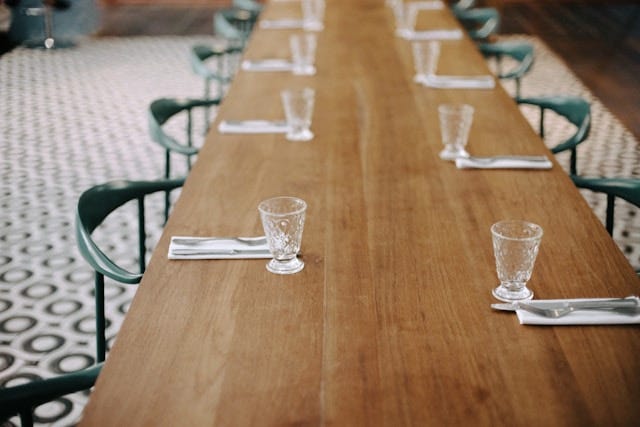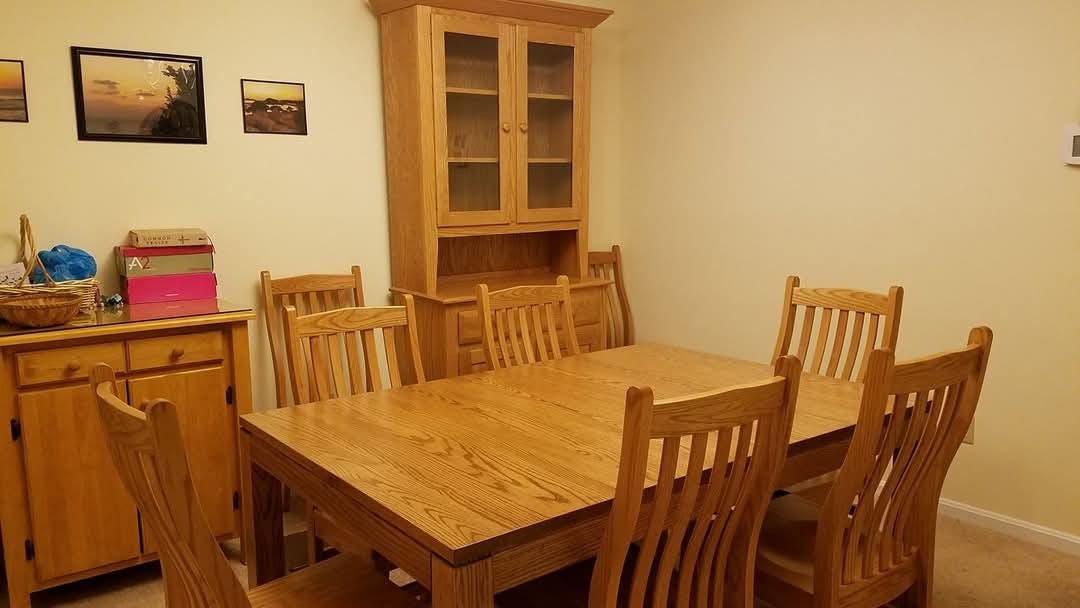I guest-preached again this past Sunday, this time at Christ the King Lutheran Church in Cary, NC.
John 21:1-19
Better than the Cross

Diana Butler Bass is a historian of American Christianity. I’ve heard her speak at a few conferences. I’ve read parts of some of her books. And hers was one of the first blogs on Substack that I subscribed to, because I was already on her email list. Is anyone familiar with her work? She looks at the trajectory of Christianity in the United States and offers insights on how we got here. It can make for pretty interesting reading. During Holy Week, she did a special Maundy Thursday post about the Last Supper, and noting how, after Good Fridy and the crucifixion, after Easter and the resurrection, the disciples returned to the same upper room where they ate the supper. [1] That room is where Jesus met them, as we read about last week. The disciples went back to their last gathering place, before everything went sideways. They went back to the table, where they had last shared a meal. Diana Butler Bass wonders, what if the table is the point? They never return back to the cross, or to Gethsemane. They go back to the last place where they broke bread. What if the shared table is a better symbol of what Christianity is all about than the cross? It’s some food for thought, pun intended. The room with the table is where they encounter the risen Christ. And in today’s reading, did you notice that they’re sharing a meal again???
After Jesus’s appearances in the upper room, John tells the story of one more appearance by Jesus. This time it’s outside, by the lake, and they’re in this weird limbo, where everything has changed, and yet they don’t know what to do. They don’t know if anything else is going to change. Many of the disciples were originally fishermen, and Peter, who’s a person of action, decides he’s going fishing; that’s what he knows how to do, that’s what he’s going to do. The others say they’ll go with. They fish all night and catch nothing. Fishing is a bust. The one thing they know how to do, their livelihood, and they utterly fail. The disciples can’t go back to how life was before they knew Jesus and they don’t know the way forward. However, there’s this friendly stranger on the lakeshore who suggests they cast their net on the other side of the boat. Rather than the arrogance of “who’s he to tell us lifelong fishermen what to do?”, or maybe because of some arrogance, “We’ll show this fool that he has no idea what he’s talking about it,” they do it. When the usual no longer works, you’ve got to try something different. The “usual” way of doing things does not work indefinitely, it’s only for a season. It can be a long season, but it’s still only a season. And a new season in life is going to require some new methods. You have to do some things differently. The question I’ve heard is recently is how do we do things differently, and still stay true to ourself? How do we live congruent with who we know ourselves to be in this new landscape in our country? What does loving our neighbor look like now? How do we still fish, or can we even continue in our livelihood? The disciples, these fishermen, have to fish differently. They have to change their strategy in order to be successful.
Then, they recognize that the friendly stranger is Jesus and off they go to meet him. Peter, the action guy, jumps in the water, which is not the first time he’s done that when he sees Jesus. There’s a hope that maybe Jesus can make this all make sense. And what Jesus has waiting for them on the lakeshore is a meal. There’s a fire going to cook the fish and Jesus breaks bread with them, just like he did at the Last Supper. I tend to doubt that there’s anything resembling a table; it seems more likely they’re just gathered around the fire, eating with their fingers. Instead of supper, Jesus cooked them breakfast. Even if there’s not a literal table, they’re sharing a meal together. It’s a feast, even, with the abundance of fish.
After the meal, instead of taking the cup, the pattern that we’re used to, Jesus has a one-on-one conversation with Peter. Peter, of course, being the one who denied he even knew Jesus after the Last Supper and that scene is always tied to this scene because of its symmetry. Peter denied Jesus three times; Jesus asks him three times, do you love me? Peter says yes all three times. Jesus replies, “Feed my lambs. Tend my sheep. Feed my sheep.” In the context of a shared meal and if the table is the point, it’s easier to see a literal meaning here. Not just take care of my flock, but feed them. Eat with them. Share food with them.
I’m curious how many of y’all ate a meal with someone outside your household this week? If you ate in the school cafeteria, you definitely did. It could be at work, or Wednesday night supper here at church, or meeting up with friends. How often do you invite others into your own home to share a meal? Once a week? Once a month? Rarely? I know COVID changed all this and made us a little more wary and sometimes hesitant to share meals. I read an article this past week about The Global Flourishing Study that Harvard did, which found a lack of flourishing among young adults around the world.[2] Because the study was so widespread, the authors could not narrow down causes, but they found patterns and they plan to keep researching to find causes. The concluding quote stuck with me, because it referenced the book that Robert Putnam published in 2000 called “Bowling Alone: The Collapse and Revival of American Community,” which was about the dangers of social isolation. The article ended with a researcher saying, “It’s not that they’re bowling alone, it’s that they are not bowling at all.” They’re not out and among people, even if solo and not with a group. They’re solo and isolated at home.
The Senior Pastor has said that his most common sermon theme is “we need people.” That’s not mine. I’m your preacher if you need a sermon on identity and vocation. Who are you? Who did God create you to be? What is God calling you to do, in this season of your life? Today, however, calls for a combination of the two. Rather than “who are you, individually?”, who are we, collectively? Who are we, the Church? And who are we called to be as the Church? How do we feed the sheep? How do we make the table longer? There’s that quote, “When you have more than you need, build a bigger table, not a taller fence.” When we bought our dining room table set, I think I surprised my husband just a bit by wanting one that got bigger than we had ever had or grew up with. Our table has four leaves; I’m still rather excited about that. In our house here, we can fit all four leaves in and extend the table into the living room, and we have. It was important to me to be able to have a table that was as big as we could afford, that we be able to include as many people as we might invite to the table, that there be room for all.
Sharing meals is a curious thing, especially if you grew up with a discerning palette and passed that trait along to your children. Hospitality isn’t just making enough servings of one dish for everyone. Hospitality is making sure everyone has something that they can eat, and that can get tricky with different allergies, sensitivities, and preferences. It’s making sure you’ve got space for kids and space for left-handed people, like Jesus. Yet, it’s also always doable, including with our friends whose son has misophonia, which in his case is a very low tolerance for the sound of people eating. We’ve figured it out and our house has enough space for folks to eat in different places.
Sharing a meal together is important. I know my family does better the more times in one week that we all sit down together. And I know it’s hard between soccer practices and work trips and other activities. When I was in middle school, we lived in suburban Washington, D.C. There was a snowstorm one winter and the news ran a story about families who were eating together for the first time in ages. This was news! That was, um, a few decades ago. It hasn’t gotten any easier for members of one household to sit down together. Yet, it’s important. When I searched pictures of “eating together,” the headlines were all things like “7 Benefits from Eating Together” and “The Power of Eating Together.” There is power in it. That’s why we do it at church, too. In a little bit we’ll gather for the shared meal of communion.
So, larger than your household, because those come in all shapes and sizes, who are your people? Where can you go and feel like you belong, like you’re wanted and you’re missed when you’re absent? My daughter joined a club at school this past year and came home saying, “I found my weirdos.” It was great. To reference something even older than when I was in middle school, there was this TV show in the 80s with a memorable theme song:
“Sometimes you want to go
Where everybody knows your name
and they're always glad you came.
You wanna be where you can see,
our troubles are all the same.You wanna be where everybody knows your name.”[3]
Now, for me, this church has become one of those places. Whether I’m holding it down in the back row or up front here filling in; whether it’s a Sunday or I stop by during the week, y’all have made me feel like I belong. And if you’ve done that for me, I know you’ve done it for others, too.
I want to end with an excerpt from blessing that talks about when you’ve lost your people, when you’ve lost your community. If you want to see the whole thing again later, it’s easily available online. It’s called “Save This Blessing” by Rev. Margaret Ernst.[4] I first heard it during the beginning of COVID, when I knew I was approaching pastoral burnout. And I heard it from my supervisor at my first hospital chaplaincy internship that started the same day everything shut down. This is the ending of “Save This Blessing”:
here is what this blessing knows:
that you are needed
that your people need you.
and that if you haven’t found your people
yet
or lose them
they can always be
regrown
in other words,
let this blessing be a safe house.
let it be a dream
let it be laughs that slip through the cracks.
let it be dancing.
let it be another start.
let it be the tap on your shoulder
helping you remember you do
not have to do
anything
alone.
This is the good news. The disciples did not have to do anything alone, even eat. And you do not have to do anything alone, either. Anyone in this room, especially among our church leaders and including me, would be happy to walk with you, listen to you, do the hard thing with you. You do not have to do it alone. Amen.
[2] https://www.nytimes.com/2025/04/30/well/mind/happiness-flourishing-young-adult-study.html
[3] “Where Everybody Knows Your Name” by Gary Portnoy and Judy Hart Angelo
[4] https://christiansforsocialaction.org/resource/save-blessing/





